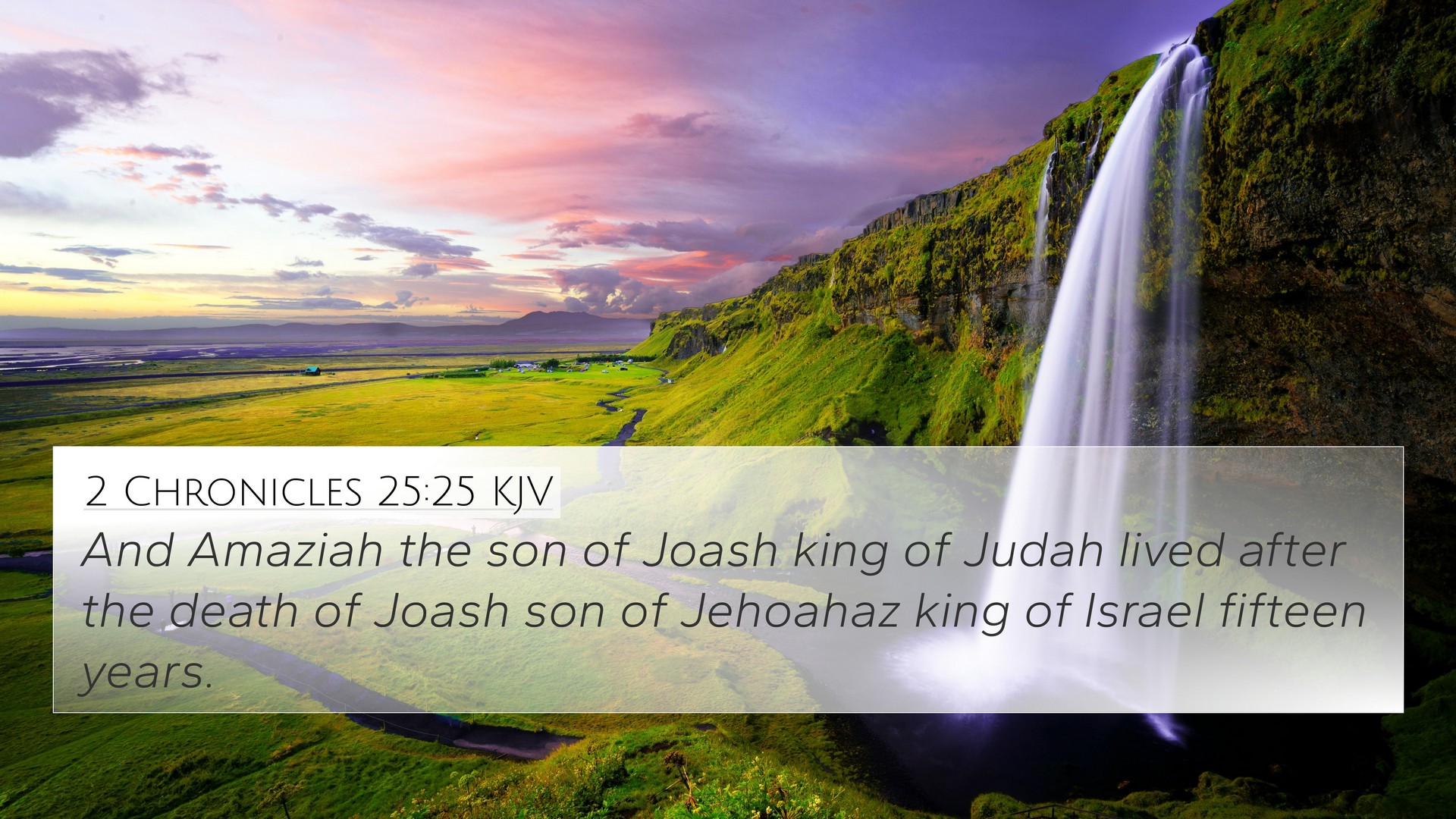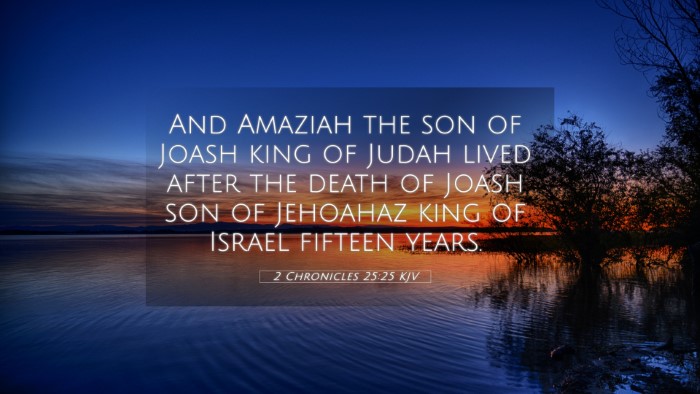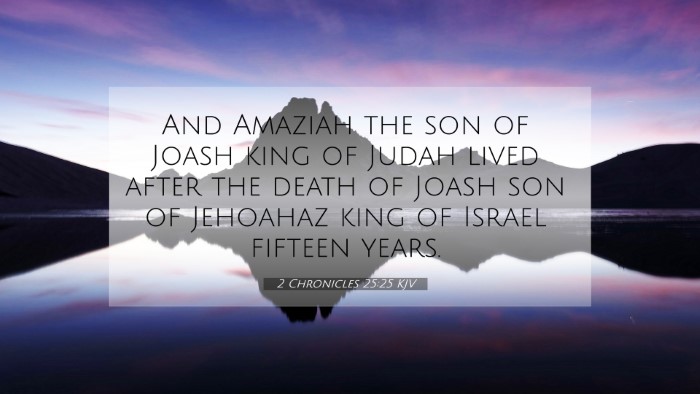Meaning and Interpretation of 2 Chronicles 25:25
Verse: "And Amaziah the son of Joash king of Judah lived after the death of Joash son of Jehoahaz king of Israel fifteen years." (2 Chronicles 25:25)
Summary of the Verse
This verse provides a chronological detail about King Amaziah, indicating that he continued to reign for 15 years after the death of King Joash of Israel. It serves a dual purpose: to establish the timeline of Amaziah’s reign and to connect the political landscape of Judah and Israel during this period.
Historical Context
Amaziah was the king of Judah, noted for both his military endeavors and his eventual turn toward idolatry. The historical backdrop of this verse involves the tumultuous relationship between the kingdoms of Israel and Judah, which were often politically intertwined yet spiritually divided.
Commentary Insights
-
Matthew Henry:
Henry emphasizes the importance of timeline in understanding biblical history. The mention of the 15 years signifies a continuation of Amaziah's reign, encouraging readers to explore the consequences of leadership succession and national faithfulness.
-
Albert Barnes:
Barnes notes the significance of Amaziah’s reign following Joash's death as a period of stability. He indicates this stability was crucial for Judah as the kingdom faced pressures and influences from surrounding nations.
-
Adam Clarke:
Clarke provides insights into the character of Amaziah, discussing how his later years were marked by both achievements and failures. This duality is instructive for understanding the multifaceted nature of biblical leadership.
Thematic Connections
This verse can be understood more deeply when considering the broader themes of leadership, fidelity to God, and the interplay between divine providence and human agency.
Related Bible Verse Cross-References
- 2 Kings 14:17-20 - Discusses Amaziah's rule and the factors leading to his downfall.
- 1 Timothy 1:12 - Reflects on the theme of God's mercy in leadership positions.
- Jeremiah 22:1-5 - Speaks to the responsibilities of leadership and the consequences of failing to remain faithful to God.
- Proverbs 29:2 - Provides wisdom on righteous leadership, echoing the importance of virtue among kings.
- Micah 6:8 - Highlights the expectations of God’s people, particularly those in authority.
- Numbers 14:18 - Discusses the theme of consequences arising from kings’ actions, linking back to Amaziah.
- Romans 13:1 - Talks about the authority of leaders, connecting to the theological implications of Amaziah’s reign.
Understanding the Connections Between Bible Verses
The connections between Bible verses, such as Amaziah's reign and the broader themes of leadership in both the Old and New Testaments, illustrate important lessons for today’s readers. The practice of cross-referencing Biblical texts can enhance one’s understanding by revealing thematic parallels and contrasts.
Tools for Bible Cross-Referencing
Utilizing a bible concordance can aid in identifying connections between Bible verses. This tool allows for a deeper exploration of recurring themes, characters, and the consequences of actions described in the scriptures.
Conclusion
In sum, 2 Chronicles 25:25 stands as a testimony to the historical and theological narratives woven throughout the Bible. By employing techniques such as cross-referencing Bible study, one can uncover rich insights that enhance the understanding of scripture's messages.



